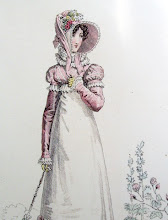If there's one thing that's guaranteed to make you feel insignificant, it's automatic doors that won't open for you. You know the feeling: you're wandering up to the supermarket entrance, green bag in hand; you step up to the glass sliding doors...and nothing happens. You're left loitering on the outside, like the little match girl, watching the happy, warm shoppers inside loading up their trolleys with imported garlic and 2-for-1 chocolate bars, until finally someone with more presence arrives and you can sneak through behind them. As happened to me this morning.
Maybe it's the way I approach the doors. Perhaps I'm too self-effacing, or I sidle too much. Usually it happens when I'm caught up thinking about something so I don't even notice until I've nearly run into the stupid things. (I'd like to say I'm caught up thinking about plot developments or character arcs or how to solve global warming, but it's more often things like What is dust made of?)
Maybe I need to practise striding in at a precise right-angle to the door. Head-on. Looking the sensor thingo dead in the eye as I do so. Or just find somewhere to shop with manual doors, to save myself the humiliation of being ignored by a machine!
Anyway, to add insult to injury I just discovered that apparently Australia is the 'dumb blonde' of the world! (And apparently it's still acceptable to call blondes dumb.)
Have a bonza day everyone.
Disappearing letter boxes
21 hours ago








